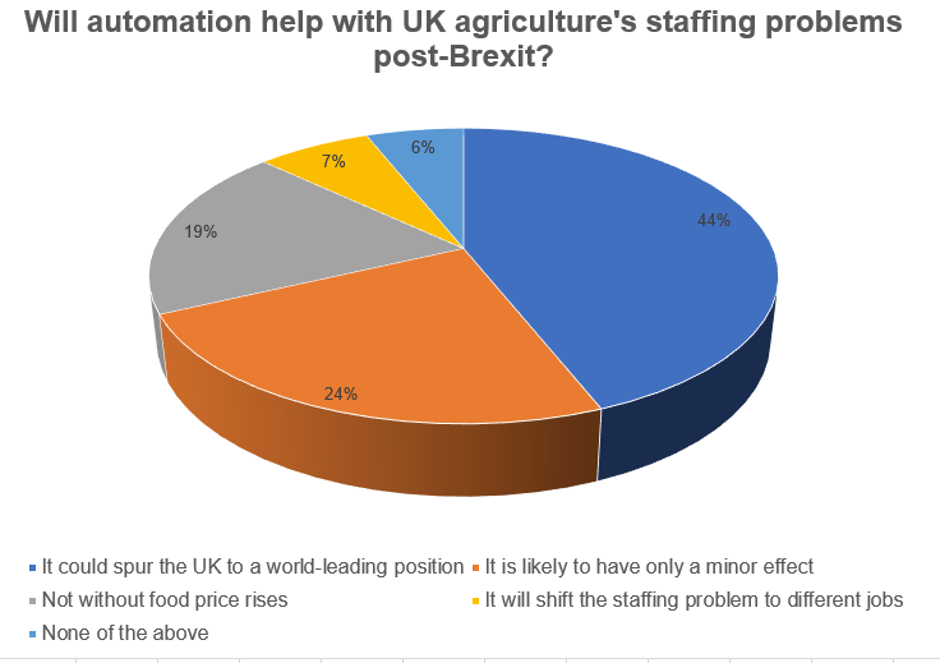Last week’s poll: could automation solve UK agriculture’s Brexit problem?
Could automation solve UK agriculture’s Brexit problem?

Some harvesting jobs can only be done by hand and the human resources to do them look likely to dwindle following Brexit.
With indigenous local labour often unwilling to accept long hours and relatively low pay, temporary workers from the European Union are often drafted in to pick the fruit and vegetables that machines can’t harvest.
As noted last week, some producers have warned of crops rotting in the fields if they cannot hire the workers they need.
The Engineer has reported on the advances taking place in agricultural automation, and a new breakthrough from Plymouth University spin-off Fieldwork Robotics in partnership with berry growing company Hall Hunter looks set to outperform humans in fruit picking duties.
Fieldwork Robotics’ solution uses sensors, 3D cameras, and machine learning to identify ripe fruit, and soft grippers to pluck raspberries and deposit them into punnets at a rate of 25,000 raspberries per day compared to 15,000 in an eight-hour shift that humans average.
Register now to continue reading
Thanks for visiting The Engineer. You’ve now reached your monthly limit of news stories. Register for free to unlock unlimited access to all of our news coverage, as well as premium content including opinion, in-depth features and special reports.
Benefits of registering
-
In-depth insights and coverage of key emerging trends
-
Unrestricted access to special reports throughout the year
-
Daily technology news delivered straight to your inbox










UK Enters ‘Golden Age of Nuclear’
The delay (nearly 8 years) in getting approval for the Rolls-Royce SMR is most worrying. Signifies a torpid and expensive system that is quite onerous...